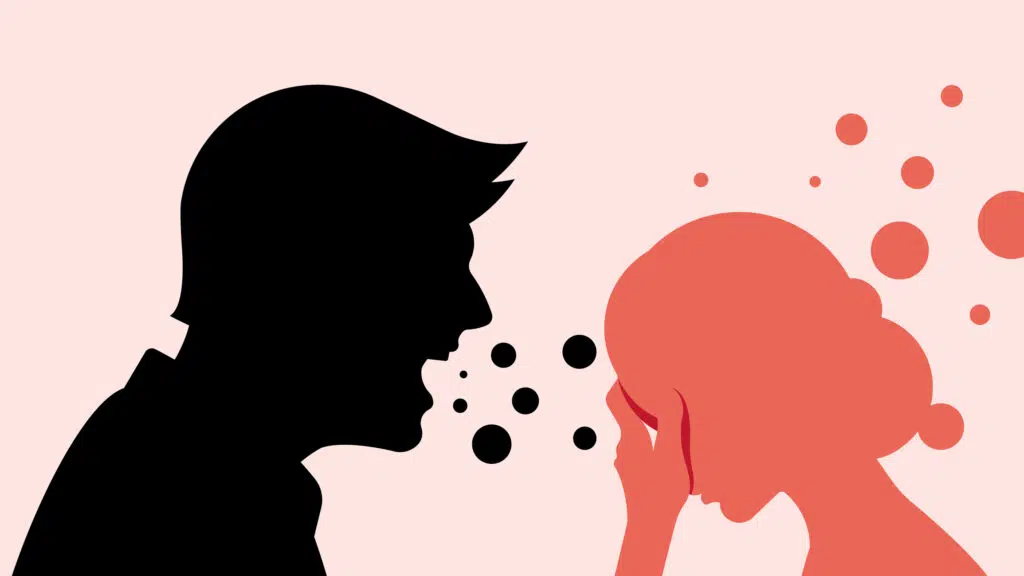How Gaslighting Can Burn Down a Relationship
Gaslighting and How it Affects Relationships

“I don’t remember saying that. You’re getting confused.”
“Stop being sensitive.”
“You always make a big deal out of everything.”
Do these comments sound familiar? If they do, there is a chance you are a victim of gaslighting.
When compared to other forms of abuse, gaslighting is one of the most difficult to recognize and prove. Unlike physical abuse, gaslighting leaves no external mark and may cause the victim to believe they are going crazy. The lasting effects of emotional trauma caused by gaslighting can last a lifetime.
What is Gaslighting?
Gaslighting is the act of manipulating a person so that they start to question their own thoughts, their memories, and events that are occurring around them. Pushed far enough, a gaslighting victim can start to question their own sanity and find it difficult to navigate their daily life without stress, worry or panic.
In the 1944 movie Gaslight, Ingrid Bergman plays a character called Paula whose husband tries to control her. He adjusts the gaslights in their home so that they start flickering. When Paula mentions it, he tells her she must be seeing things and tells her they are burning steadily. Manipulating the environment is just one of the tactics used by manipulators and it can be extremely upsetting and damaging.
Recognizing the Signs of Gaslighting
In ‘The Gaslight Effect: How to Spot and Survive the Hidden Manipulation Others Use to Control Your Life’, a book by Robin Stern, Ph.D., signs of gaslighting include:
- being more anxious and less confident than you used to be
- no longer feeling like the person you once were
- often wondering if you are too sensitive
- feeling the need to apologize often
- feeling like everything you do is wrong
- always feeling that it’s your fault when things go wrong
- having a sense that there is something wrong but unable to put your finger on it
- often questioning whether the response you give to your partner is appropriate
- making excuses for your partner’s behavior
- avoiding contact with friends and family in case they are critical of your partner or you are critical
- finding it harder and harder to make decisions
- feeling hopeless
- finding it harder to make decisions on your own
The Impact of Gaslighting on a Relationship
Gaslighting is more common in marriages, but it can occur during any stage of a relationship. Gaslighting can also occur in the workplace, between parents and their children and between siblings. In fact, any close relationship can be subject to this form of abuse.
Sadly, many people go on for years before they understand what has been happening to them. No matter what the cause, gaslighting is inexcusable. Whether you are newly married and just finding out that your husband is gaslighting you or you’ve been married to your wife for years and you are only just realizing the truth, there is no plausible reason why you should have been treated this way. It can be incredibly hurtful to realize that the one person you thought was the love of your life has been manipulating you on purpose for their own gain or pleasure.
But Help Is Available
Whether you are just beginning to recognize that you are a victim of gaslighting or you have known for years, there is light at the end of the tunnel. First, you need to learn to trust in your intuition and realize that the gaslighter’s actions and comments are nothing to do with who you are. You must also understand that gaslighters often have deep psychological issues that you cannot change alone. The only person you can change is yourself and how you handle the situation you are in. In many cases, the only way to loosen the hold that the gaslighter has on you is to leave the relationship.
For some relationships, couples therapy can help to turn things around. Licensed counselors can be a very valuable resource, whether they are helping you to overcome the impact that gaslighting has had on you or attempting to heal a relationship. However, couples therapy can only really work if your partner recognizes they have a problem. And even if they do recognize they have a problem, they need to be willing to work on this for the sake of the relationship.

Understanding Impostor Syndrome: Breaking Free from Self-Doubt
Imposter syndrome can make you feel like a fraud with no confidence in your abilities. You’re not alone; so many people feel like this. The good news is that you can break free from imposter syndrome and overcome self-doubt; here’s how.

Supporting a Loved One with Mental Illness: Practical Tips and Resources
There isn’t one perfect way to support a loved one with mental illness. How you care for someone will depend on you and the person you support. Mental illness can affect all aspects of a person, from mood to behavior. It can come as a shock when a loved one is diagnosed with a mental illness.

Is My Relationship One-Sided?
Do you feel like you’re doing all the work in a relationship? When a relationship is one-sided, it can create stress and conflict. If one partner invests more energy and effort to make the relationship work, it creates an imbalanced dynamic that can be draining in the long haul.

How To Recover From Burnout?
Manageable and short-term stress can increase alertness and give you the focus to hit a tight deadline. But left unchecked, chronic stress can result in burnout, leading to complete physical, mental, and emotional exhaustion.

